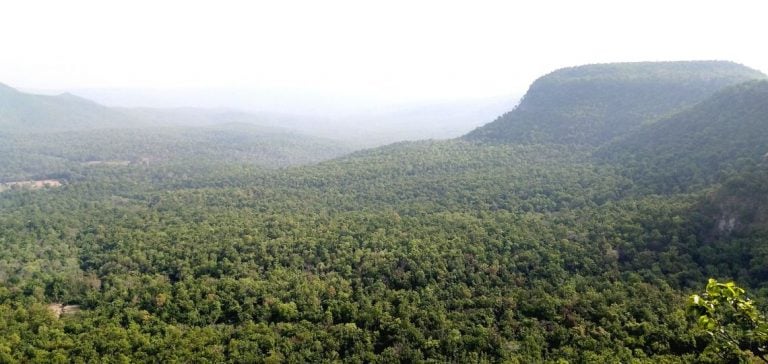NextGen Purchases Carbon Credits from Alt Carbon in India
Carbon removal specialist NextGen CDR has entered into an agreement on October 16 to purchase carbon sequestration credits from Alt Carbon’s enhanced rock weathering project in Darjeeling, India. This agreement represents NextGen’s first transaction outside Europe and the United States, illustrating the expansion of its activities into new markets.
The contract provides for the long-term purchase of a quantity of carbon dioxide sequestration credits certified by the Isometric registry, at an average price of $200 per tonne of CO₂e, for delivery scheduled between 2025 and 2030, the companies stated in a press release. NextGen, a joint venture between project developer South Pole and the Japanese industrial conglomerate Mitsubishi Corp., announced that the credits from this project will be acquired by a group of global buyers including Boston Consulting Group, LGT Group, Mitsui O.S.K. Lines, SwissRe, and UBS.
Carbon dioxide removal (CDR) refers to climate mitigation strategies aimed at eliminating CO₂ emissions from the atmosphere, as opposed to strategies aimed at avoiding such emissions. Carbon sequestration projects encompass a wide range of approaches, including technological methods such as direct air capture, enhanced rock weathering, biochar, biomass carbon removal and storage, as well as nature-based projects like afforestation and reforestation.
Enhanced rock weathering is a chemical process that accelerates the natural carbon sequestration process. Alt Carbon will spread basalt on tea plantations in the Himalayan foothills, where the humid weather conditions speed up the rock’s ability to remove CO₂ from the atmosphere and store it in the soil for thousands of years.
Alt Carbon aims, with its Darjeeling Revival project, to remove 5 million tonnes of carbon dioxide from the atmosphere by 2030 and hopes to develop more projects in northeastern India, a region home to several tea estates. “Every research paper in the world highlights that India and Brazil are the best areas for rock weathering primarily due to high temperatures, high rainfall, high acidity, and easy access to feedstocks,” Alt Carbon Co-Founder and CEO Shrey Agarwal told S&P Global Commodity Insights.
Agarwal comes from a family of tea estate owners, making access to land easy, and the company has invested significant time in building a scientific team and striving to make the project cost-effective. The company states that spreading basalt alongside traditional farming will support rural farmers and improve soil health in Darjeeling’s tea estates in the Himalayan foothills.
Alt Carbon recently secured a $500,000 pre-purchase agreement with Frontier, a coalition of carbon removal buyers founded by Stripe, Alphabet, Meta, Shopify, and McKinsey Sustainability.
This transaction comes amid a surge of carbon sequestration offtake agreements in recent months. Tech giants like Microsoft, Meta, and Google have been very active in this sector. Megan Kemp, head of Tech CDR at NextGen, stated that the company was designed to be a large-scale purchaser of carbon sequestration credits to grow this nascent yet popular market. This is a growing trend in carbon removals, where many companies are coming together to form a buyers’ coalition to help monetize and scale this market.
“You can’t just switch on the carbon dioxide removal market. These are long-term, highly complex infrastructure projects that need 20 years of financing,” Kemp said in an interview with Commodity Insights.
This is the fifth type of carbon sequestration technology that NextGen has invested in. The company has previously agreed to advance purchase credits in four sequestration technologies: direct air capture, bioenergy carbon capture and storage, product mineralization, and biochar, Kemp added.
This trend of large corporate buyers shifting toward premium-priced sequestration credits rather than continuing to invest in the avoidance sector is expected to persist in the coming months. CDR technologies are seen as a necessary tool in the fight against climate change. The IPCC has stated that CDR technologies will need to account for around 10 gigatonnes/year of CO₂ globally by 2050 to achieve net-zero goals.
Platts, part of S&P Global Commodity Insights, assesses the price of carbon credits generated from technology-based carbon projects such as biochar projects, direct air capture projects, and carbon sequestration, capture, and storage operations. Platts assessed technology-based carbon capture credits at $140 per tonne of CO₂e on October 15, compared to $12.55 per tonne of CO₂e for standard sequestration credits on the same day.
The price of credits from technology-based carbon sequestration projects has consistently traded at a significant premium compared to other types of sequestration credits. This premium on tech-based credits reflects not only the higher cost of implementing projects but also a perception of lower risks related to aspects such as environmental integrity, additionality, and permanence.






















